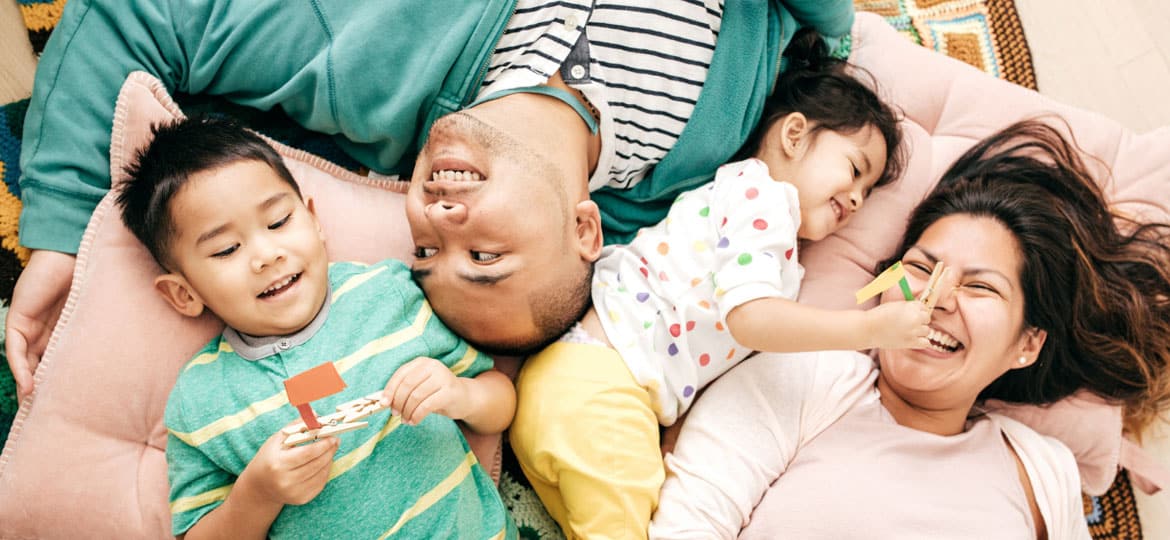Calgary Parenting Counselling and Therapy: Nurturing Families, Empowering Parents

At our Calgary Psychologist Clinic, we offer parenting counselling from a family-based framework, providing invaluable guidance and support to adults navigating the complexities of raising children. Our dedicated therapists specialize in child development and family dynamics, offering a safe and collaborative space for parents to address challenges, enhance their parenting skills, and foster healthier family dynamics.
Understanding Parenting Counselling: A Journey of Growth and Connection
Parenting counselling with a psychologist offers a transformative journey for parents, empowering them with insights, strategies, and support to navigate the joys and challenges of parenthood. Through individual or family sessions, parents explore a range of topics, including child development, effective communication, behavior management, and nurturing positive parent-child relationships. Our therapists provide compassionate guidance tailored to each family’s unique needs, fostering growth, connection, and resilience.
Our Calgary Psychologists Providing Parenting Counselling and Therapy
Jarret Verwimp
Clinical Canadian Certified Counsellor
English, French, Spanish (basic)
Murray Molohon
Registered Psychologist
English
Andrea Krygier
Registered Psychologist
English, Spanish
Nav Gill
Registered Provisional Psychologist / Clinical Counsellor
English, Punjabi
Dr. Raheleh Tarani
Registered Provisional Psychologist
English, Farsi, Japanese (basic), Hindi, Turkish, Punjabi, Urdu
Preeti Rakhra
Registered Provisional Psychologist
English, Hindi
Building Strong Foundations: Equipping Parents for Success
Central to parenting counselling is the development of practical skills and strategies to address common parenting challenges. Our Calgary psychologists collaborate with parents to identify strengths, set achievable goals, and implement evidence-based techniques for promoting positive behavior, setting boundaries, and fostering emotional well-being. By empowering parents with the tools they need to navigate complex family dynamics, counselling cultivates a supportive environment where children can thrive.
Family-Centered Approach: Nurturing Cohesion and Connection
Parenting counselling often extends beyond individual sessions to involve the entire family, allowing for a comprehensive exploration of family dynamics and communication patterns. By addressing underlying issues within the family system, our therapists foster greater cohesion, understanding, and connection among family members. Through open dialogue and collaborative problem-solving, counselling promotes resilience and nurtures a supportive environment conducive to growth and development.
Embracing the Journey: Empowering Parents, Nurturing Families
Parenting counselling with our Calgary psychologists offers a transformative journey of growth, empowerment, and connection for families. By providing compassionate support, evidence-based strategies, and practical guidance, our therapists empower parents to navigate the challenges of parenthood with confidence and resilience. We invite you to take the first step towards nurturing a thriving family dynamic by scheduling a free consultation with our experienced therapists today. Together, we can create a nurturing environment where both parents and children can flourish.
Parent Therapy: Guide to Better Family Relationships

Parents who finish a structured therapy program see major positive changes in their family’s relationships. These changes show up in emotional support, communication, and setting boundaries. Life’s challenges like marriage problems, health issues, or raising children with special needs can overwhelm even the most capable parents.
Parent therapy creates a safe space where parents tackle these challenges head-on. Families struggling with poor communication, unbalanced roles, or outside pressures benefit the most from parenting counseling. The therapy helps families build life skills they need. Parents learn to manage stress, show empathy, and communicate better with their children. This deepens their bond with kids.
This complete overview dives into parent therapy’s basics, science behind it, and real ways to build stronger family bonds. You’ll discover proven approaches, modern parenting hurdles, and ways to track your progress in therapy.
Understanding Parent Therapy Fundamentals
Parent therapy is a specialized form of counseling that helps improve parenting skills and fixes problems in parent-child relationships [1]. While family counseling looks at the whole family system, parent therapy strengthens parents to become key drivers of change in their children’s lives.
Evidence-based approaches in parental therapy have showed impressive success rates. Studies indicate that parent-child focused evidence-based programs (EBPs) create positive changes and reduce disruptive behavior in children and teenagers [2]. On top of that, these approaches involve parents and treat them as key partners to deliver effective treatment.
Parents should consider therapy in several situations. Mental health professionals suggest professional help when:
Parent-child conflicts or communication problems persist
Children show behavioral changes that need expert help
Parents struggle with consistent approaches
Parents need education about specific childhood conditions
Research reveals that families who use parent-child focused EBPs work better and face fewer problems than those who get standard treatment [2]. Early therapy can stop behavioral issues from getting worse and build stronger family bonds.
Parent therapy usually takes two to six sessions, based on what families need and their schedule [1]. Therapists help parents learn structured communication techniques, ways to manage emotions, and steps to handle crisis situations. They guide parents to understand their parenting style and make the good parts better while fixing the challenging ones.
Scientific Framework of Parent-Child Relationships
Science has uncovered fascinating details about how parents and children connect. Research shows that parent-child neural similarity during movie watching associates with kids who adjust better emotionally and feel less anxious [3].
Attachment Theory in Modern Parenting Children come into this world naturally programmed to bond with their caregivers as a survival mechanism. These early bonds become the blueprint that guides people through their relationships and stress responses later in life [3]. Research points to several benefits of secure attachments:
Better control over emotions
Stronger social skills
Improved stress handling
Healthy self-esteem growth
Neurobiological Aspects of Parent-Child Bonding Brain studies show how parent-child neural similarity shapes a child’s emotional growth [3]. Research proves that neural synchrony between parents and children during shared moments helps develop emotional processing abilities [3]. Children show better emotional adjustment and resilience when their brains sync more closely with their parents’ [3].
Impact of Parental Stress on Family Dynamics Parental stress disrupts family relationships and child development. Research links higher levels of parental stress to poor psychological health and relationship problems [4]. Parents under stress often show unhealthy parenting patterns that can disrupt their children’s social and emotional growth [5]. Daily stress levels directly change how parents and children interact, which shapes both immediate and future family dynamics [2].
Implementing Effective Parenting Strategies
Parents who use good parenting strategies start with a well-laid-out approach to family communication. Research shows that parental involvement guides children toward better academic performance, social skills, and behavior [6].
Structured Communication Techniques
Parents can improve their communication when they use these proven methods:
Making eye contact and listening actively
Speaking in age-appropriate language
Setting up regular family meetings
Giving undivided attention during talks
Emotional Regulation Methods
Emotional regulation in parenting works only when we are willing to stay calm ourselves before responding to our children’s needs [7]. Studies show that children who handle their emotions well perform better in school and build stronger friendships [7]. Parents can build better emotional control through mindfulness practice and self-awareness techniques.
Crisis Management Protocols
A written crisis management plan helps parents handle tough situations better [8]. Everything in crisis management includes trigger identification, early warning signs, and specific calming strategies. Parents should create clear protocols that cover:
Baseline behavior indicators
Early intervention techniques
Emergency response procedures
Support system contacts
These strategies need consistency and patience to work. Research shows that harsh punishment makes behavior worse. The best approach is to make sure positive interactions outnumber negative ones by four or five to one [7].
Modern Challenges in Parent Counseling
The digital age brings new challenges to parent therapy. Studies show that 62% of families say technology disrupts their interactions [9]. Parents find it harder to connect with their children because of digital distractions.
Digital Age Parenting Obstacles
Parents today face several technology-related challenges:
Parental technoference affects child development [10]
Too much screen time creates conduct problems [10]
Digital device addiction is real – 16% of mothers use smartphones 5-15 hours daily [10]
Families spend less time talking face-to-face [10]
Remote Therapy Solutions
Telemental health services are a vital support system for families who need therapy. Research shows internet-based Parent-Child Interaction Therapy (iPCIT) gets positive results [11]. Remote therapy makes help more accessible, especially for families in rural areas or those who have trouble with transportation.
Cultural Competency in Parent Therapy
Unlike traditional methods, culturally competent parent therapy recognizes how different backgrounds shape family dynamics. Therapists must understand how cultural beliefs shape treatment success [12]. Research shows that cultural competence in therapy results in:
Better therapeutic relationships
More involvement in treatment
Improved mental health results
Fewer therapy dropouts
Adding cultural awareness to parent therapy helps create treatments that respect family values and address specific challenges in different communities [12].
Preventive Parent Therapy Approaches
Parent therapy works best when it focuses on making family bonds stronger before problems start. Research shows that families with positive relationships handle stress better and show healthier behaviors [13].
Early Intervention Techniques
Programs that start early have shown great results in making children and families more resilient. Children who join family-centered prevention programs take fewer risks and feel better about themselves [13]. These techniques work best when families use:
Regular family check-ins and meetings
Well-laid-out communication practices
Active listening with eye contact
Consistent behavioral expectations
Building Resilient Family Systems
We focused on helping families stay close through shared activities and traditions. Research reveals that children who eat dinner with their families daily have better relationships at home and do well in school [13]. Family traditions create a sense of identity and security that comforts everyone in the family [13].
Proactive Conflict Resolution
Strong families handle disagreements in constructive ways through proven methods. Research shows that healthy families don’t avoid conflicts but learn to deal with them effectively [14]. Good conflict management happens when people step away from heated moments, think clearly about the situation, and share feelings through structured talks [14].
These prevention methods need time and patience to work well. Families who spend time building these core elements ended up with better emotional health and became more resilient [13].
Measuring Success in Parent Therapy
Parent therapy success depends on a systematic assessment of both immediate and long-term outcomes. Therapists set baseline metrics and track progress throughout the treatment trip.
Quantifiable Improvement Metrics
Clinical assessments employ multiple measurement tools to track therapeutic progress. Research shows successful parent therapy programs lead to:
Parents report fewer child problem behaviors [15]
Children show better adaptability and social skills [15]
Parent-child interactions become more positive [15]
Parents experience less stress [15]
Long-term Outcome Assessment
The largest longitudinal study reveals mothers managed to keep improvements in their children’s behavior three to six years after completing treatment [1]. Research shows that a child’s behavior at post-treatment assessment predicts long-term outcomes effectively [1].
Adapting Therapeutic Approaches Based on Results
Treatment success needs careful assessment of environmental factors that shape behavioral patterns [15]. These successful interventions include:
Clear reinforcement protocols for positive behaviors
Environmental modifications to prevent behavioral issues
System-wide changes with parents, caregivers, and teachers [15]
Studies prove that adapted interventions combining preventive strategies and direct instruction about appropriate behaviors cut problem behaviors by 85% [15]. These modifications help children develop better self-esteem, speech development, and emotional awareness [15].
Conclusion
Parent therapy helps build stronger family bonds and tackles today’s parenting challenges head-on. Studies show it works well in many areas, from better communication to improved emotional control.
Parents learn vital skills that change their children’s relationships through proven methods and research-backed techniques. Science shows us how strong parent-child bonds and brain connections lead to better emotional growth and behavior in children.
These programs deliver real results in family dynamics, especially when families start early and take preventive steps. The numbers tell a clear story – problem behaviors decrease, parents feel less stressed, and parent-child relationships improve even years after finishing therapy.
Today’s families deal with new challenges, especially with technology and cultural shifts. Parent therapy keeps up with these needs by offering online counseling and culturally aware methods that work for families of all backgrounds.
Building healthier family relationships takes commitment, steady effort, and expert guidance. Parents who use clear communication methods, emotion management techniques, and crisis handling steps build strong family units that can handle life’s ups and downs together.
FAQs
Q1. What is parent therapy and how does it differ from family counseling? Parent therapy is a specialized form of counseling that focuses on enhancing parental capabilities and addressing challenges in the parent-child relationship. Unlike family counseling, which involves the entire family system, parent therapy concentrates on empowering parents as primary agents of change in their children’s lives.
Q2. How can parent therapy improve family relationships? Parent therapy can improve family relationships by teaching structured communication techniques, emotional regulation methods, and crisis management protocols. It helps parents develop essential life skills such as stress management, empathy, and effective communication, which strengthen the parent-child bond and overall family dynamics.
Q3. What are some signs that a family might benefit from parent therapy? Families may benefit from parent therapy if they experience persistent parent-child conflicts, communication breakdowns, behavioral changes in children requiring specialized intervention, challenges in maintaining consistent parenting approaches, or need psychoeducation about specific childhood conditions.
Q4. How does the digital age impact parenting, and how can parent therapy help? The digital age has introduced challenges such as technology disrupting family interactions, increased screen time leading to conduct problems, and digital device addiction. Parent therapy can help by addressing these issues, providing strategies for managing technology use, and promoting meaningful face-to-face family interactions.
Q5. What are some preventive approaches in parent therapy? Preventive approaches in parent therapy include early intervention techniques, building resilient family systems, and proactive conflict resolution. These approaches focus on strengthening family relationships before serious issues arise, through regular family check-ins, structured communication practices, shared activities, and establishing effective conflict management protocols.
References
[1] – https://www.researchgate.net/publication/10644599_Outcomes_of_Parent-Child_Interaction_Therapy_Mothers‘_Reports_of_Maintenance_Three_to_Six_Years_After_Treatment
[2] – https://link.springer.com/article/10.1007/s10964-022-01691-5
[3] – https://www.jneurosci.org/content/43/33/5936
[4] – https://pmc.ncbi.nlm.nih.gov/articles/PMC10695745/
[5] – https://pmc.ncbi.nlm.nih.gov/articles/PMC11209751/
[6] – https://www.edutopia.org/article/teacher-parent-communication-strategies-start-year-right/
[7] – https://www.apa.org/topics/parenting/emotion-regulation
[8] – https://www.pacer.org/cmh/learning-center/crisis-planning/crisis-management.asp
[9] – https://www.thechicagoschool.edu/insight/psychology/family-therapists-evolving-role-navigating-modern-relationship-challenges/
[10] – https://pmc.ncbi.nlm.nih.gov/articles/PMC8932188/
[11] – https://pmc.ncbi.nlm.nih.gov/articles/PMC8112899/
[12] – https://www.leonecentre.com/glossary/cultural-competence-in-family-therapy/
[13] – https://anchorlighttherapy.com/strengthen-family-bonds/
[14] – https://extension.missouri.edu/publications/mp623
[15] – https://pmc.ncbi.nlm.nih.gov/articles/PMC5519301/
Calgary Counselling And Psychologist Services
Our Calgary Psychologists and therapists offer counselling and formal psychological assessment services for individuals, couples, and families. We tailor these services to meet the unique needs of each client. Our goal is to support our clients in achieving their personal and relational goals.
We help families improve communication and solve problems. We also offer assessments for learning disabilities and ADHD. Our support extends to various mental health issues. Our support covers many mental health issues.
Our therapists dedicate themselves to providing a safe and supportive environment for clients of all ages and backgrounds. They help clients explore their thoughts, feelings, and experiences. The team is committed to creating a space where clients can feel comfortable and understood. They strive to help clients on their journey towards healing and growth.
We are here to help with individual therapy, couples counseling, or support for your child, teen or family. We offer counseling services in person and virtually. This makes it convenient and flexible for our clients to access our services. Whatever challenges you may be facing, we are committed to guiding you towards healing, growth, and greater well-being.

























Calgary Therapy Mental Health Issues
In our Calgary counselling clinic, we help with many mental health problems. Our therapists can assist with a range of issues. These include grief, trauma, anxiety, depression, parenting challenges, PTSD, eating disorders, postpartum depression, fears and phobias, ADHD, self-esteem issues, relationship difficulties, OCD and many more.
No matter what you’re dealing with, our therapists are here to provide evidence-based therapy that fits your needs. We want to help you overcome challenges, build resilience, and find more happiness and fulfillment in your life.




























